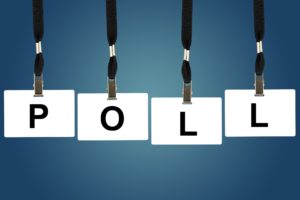by Gabriel Levitt, President, PharmacyChecker.com and Prescription Justice | Sep 29, 2017 | Drug Importation
 Last weekend, Jay Hancock of Kaiser Health News wrote an article entitled “Everyone Says We Must Control Exorbitant Drug Prices. So, Why Don’t We?” I’ve been thinking about it all week, as it ubiquitously made the rounds among our community of activists, journalists, policy wonks, etc.—many passionate people that focus on drug pricing and viable solutions.
Last weekend, Jay Hancock of Kaiser Health News wrote an article entitled “Everyone Says We Must Control Exorbitant Drug Prices. So, Why Don’t We?” I’ve been thinking about it all week, as it ubiquitously made the rounds among our community of activists, journalists, policy wonks, etc.—many passionate people that focus on drug pricing and viable solutions.
Mr. Hancock’s answer was most cogently provided by writing that momentum has slowed on drug prices: “amid rancorous debates over replacing Obamacare (…) stalled by roadblocks erected via lobbying and industry cash.” Yesterday, with the threat of Obamacare’s demise alleviated, it’s worth noting, Congressman Elijah Cummings (D-DE) called out President Trump’s inaction on drug prices and for flouting his campaign promises. I suspect there will be more hearings, and talk, and talk, and condemnation, more talk, and exasperation with Big Pharma, mostly from Democrats but also from Republicans.
While pharmaceutical company lobbying initiatives loom over Congress’ every move preventing legislation and regulatory reforms to actually help Americans, patients are forced to ration and tens of millions skip taking critical meds due to cost. Mr. Hancock gives a rundown of the policies on the table to tackle high drug prices: drug importation, transparency, Medicare drug price negotiations, improved generic availability and competition. (more…)
Tagged with: jay hancock, Kaiser
by Gabriel Levitt, President, PharmacyChecker.com and Prescription Justice | Sep 30, 2016 | Advocacy, Drug Prices, Policy, Politics

What Americans think about drug prices…
A new poll by Kaiser Family Foundation found that 44 million Americans find it difficult to afford medication. Also, 77% of Americans believe drug prices are unreasonable, up from 72% last year. On the other hand, most Americans did not have trouble affording their medications. Of the 55% of Americans who take medication, 73% say they can afford them, 26% say that its’ difficult. (I’m not sure why that doesn’t round to 100%).
Overwhelming majorities of Americans support policies, legislative reforms in most cases, to bring down prescription drug prices and have access lower cost medications from Canada. The most popular policy would be forcing pharmaceutical companies to be transparent about their pricing of medication. The next two most favored policies are allowing Medicare to negotiate drug prices and expanding personal importation of lower cost medication from Canada.
The Kaiser Poll was a nationally representative random survey of 1204 adults living in the U.S. Public and voter opinions on drug prices are just one part of the survey, albeit the main one: but the poll also covers voter opinions and data about health insurance generally, Obamacare, premiums, and deductibles.
The Kaiser Poll has very interesting political analyses relating to how a person will vote in the upcoming presidential election and the candidates’ positions on prescription drug costs and other healthcare issues. If interested, the positions of Hillary Clinton and Donald Trump are summed up on the blog of Prescription Justice. Both Clinton and Trump support expanding access to lower cost imported medications through personal importation, but Clinton has a much more ambitious plan, which is very much congruous with public opinion among Democratic and Republican voters.
Tagged with: Kaiser, poll
by PharmacyChecker.com | Sep 9, 2011 | Medicare Drug Plans
New research shows that the Medicare drug plan “doughnut hole” seriously endangers not only the pocketbook, but also the health of our nation’s seniors and other Medicare enrollees. Two separate studies released this month show that patients who reach the coverage gap are more likely to stop taking their medication than they are to switch to a cheaper drug: the Public Library of Science published Changes in Drug Utilization During a Gap in Insurance Coverage: An Examination of the Medicare Part D Coverage Gap, and the Kaiser Family Foundation Program on Medicare Policy published Understanding the Effects of the Medicare Part D Coverage Gap in 2008 and 2009.
The putative reason for the coverage gap is that the threshold will teach consumers to be aware of drug costs. Jennifer Polinski, ScD, MPH, the author of PLoS study says, “there is an expectation that people will seek less expensive drug options when they enter the donut hole.” However, these studies reveal that this is clearly not the case. Research from 2006 and 2007 shows that beneficiaries were 40% less likely to switch a drug if they did not receive financial assistance, as opposed to those beneficiaries who did. Likewise, the Kaiser study reveals that about 3.4 million, or 12%, of Part D enrollees who reached the gap in 2008 and 2009 discontinued their medication. (more…)
Tagged with: brand name drugs, coverage gap, doughnut hole, generic drugs, Kaiser, Medicare, Part D, PLoS, prescription abandonment, prescription non-adherence, Public Library of Science, research
 Last weekend, Jay Hancock of Kaiser Health News wrote an article entitled “Everyone Says We Must Control Exorbitant Drug Prices. So, Why Don’t We?” I’ve been thinking about it all week, as it ubiquitously made the rounds among our community of activists, journalists, policy wonks, etc.—many passionate people that focus on drug pricing and viable solutions.
Last weekend, Jay Hancock of Kaiser Health News wrote an article entitled “Everyone Says We Must Control Exorbitant Drug Prices. So, Why Don’t We?” I’ve been thinking about it all week, as it ubiquitously made the rounds among our community of activists, journalists, policy wonks, etc.—many passionate people that focus on drug pricing and viable solutions.


